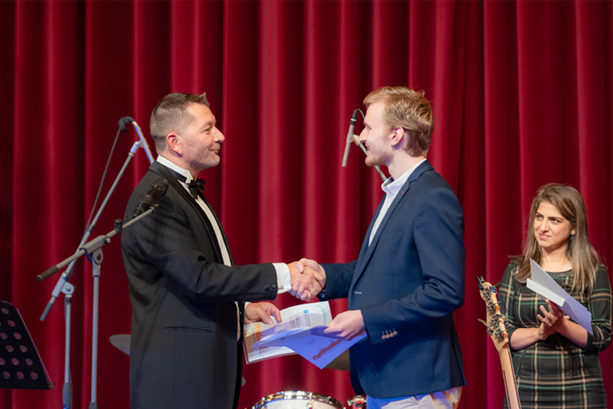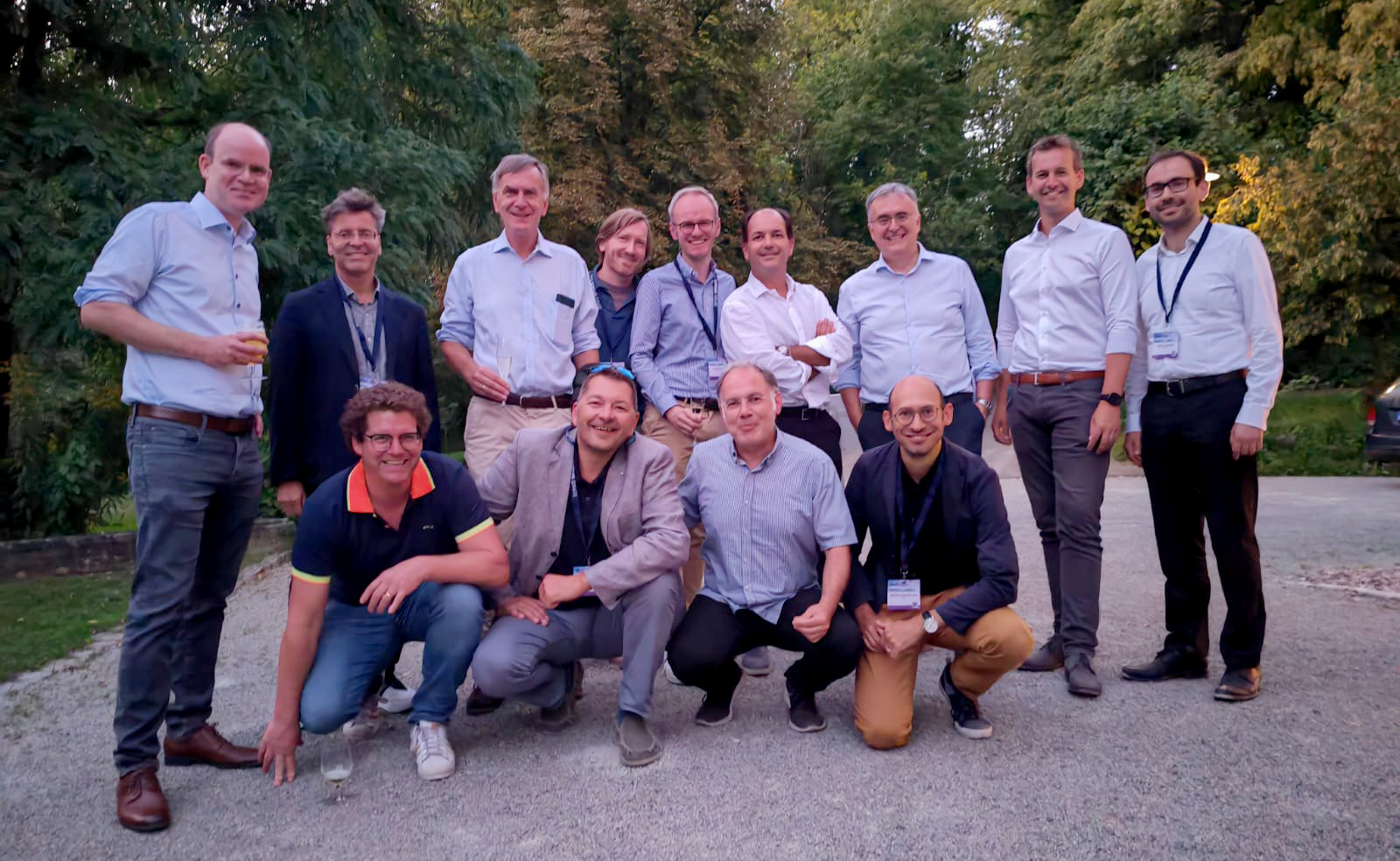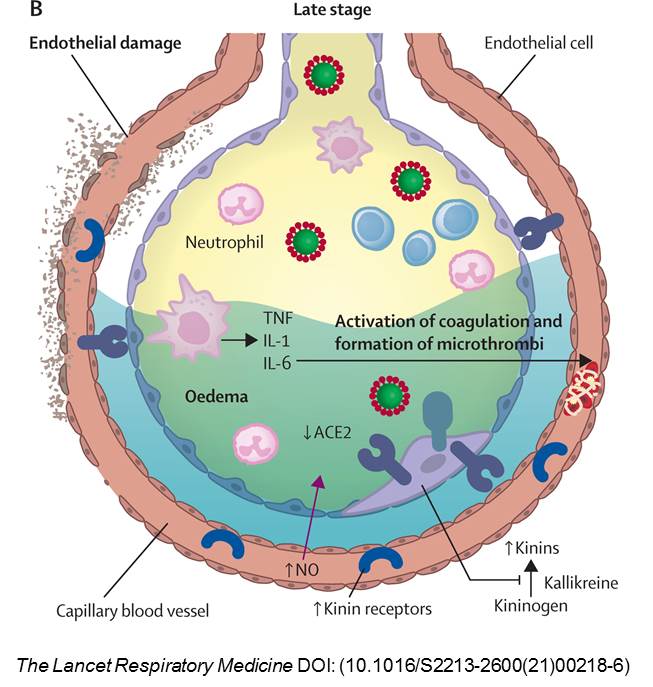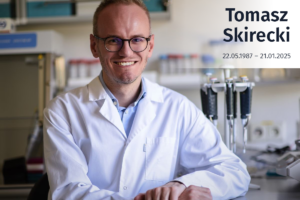-
ENIAC award for EGIS-associated MD student
 Continue reading →: ENIAC award for EGIS-associated MD student
Continue reading →: ENIAC award for EGIS-associated MD studentAndré van der Wurff, MD student in the lab of Stefanie Flohé, University Hospital Essen, Germany, was awarded second place in the European New Investigator Award Competition (ENIAC) at the European Shock Society Congress in Vienna in September 2023 for his study on the suppression of natural killer cells in…
-
EGIS at the Weimar Sepsis Update 2023
 Continue reading →: EGIS at the Weimar Sepsis Update 2023
Continue reading →: EGIS at the Weimar Sepsis Update 2023EGIS was present at this year’s Weimar Sepsis Update meeting with its own dedicated session. Held in beautiful Weimar, the city of classicism and Bauhaus, this biennial meeting has undoubtedly become one of the leading scientific sepsis meetings worldwide. With 17 EGIS members attending the meeting, the EGIS session featured…
-
Stop the war!
Continue reading →: Stop the war!Putin has declared war on the free Ukrainian people and we have all woken up to a Europe we could not have imagined before. As scientists working together to improve human health and united in the European Group on Sepsis Immunology (EGIS), we cannot accept and wholeheartedly condemn the Russian…
-
News on trained immunity and heme
Continue reading →: News on trained immunity and hemeA recent publication by the EGIS members Sebastian Weis and Michael Bauer reveals a new facet of the recently described long-term memory of innate immune cells, termed trained immunity and its role in sepsis. The authors can show that the course of sepsis is altered when the infected organism had…
-
Combatting Sepsis on the National and International Level; a session from the recent WHO summit.
Continue reading →: Combatting Sepsis on the National and International Level; a session from the recent WHO summit.The session “Combatting Sepsis: Global and National Strategies” from the WHO summit is available on YouTube. It provides new insights on the role of the immune system in sepsis and the potential of novel immunomodulatory therapeutic approaches. It offers an update on the burden of sepsis and an overview on…
-
Open Postdoc position at Jena, Germany/ UConn, USA
Continue reading →: Open Postdoc position at Jena, Germany/ UConn, USAA postdoctoral position is available to study host-microbe interactions focusing on extracellular vesicles, innate immunity, and inflammasomes in the context of infectious and inflammatory diseases including sepsis. This two-year postdoctoral position is jointly supervised by Vijay Rathinam (UConn Health) and Michael Bauer (Jena University Hospital). Full job advertisement (pdf)
-
Genetic Predisposition to the Mortality in Septic Shock
Continue reading →: Genetic Predisposition to the Mortality in Septic ShockA recent publication by a research group around D. Payen sheds light on genetic factors associated with increased mortality risk in septic shock. Besides, environmental factors and comorbidities, genetic predisposition plays a key role in regulation of the host response to infection. By genome-wide association studies, several genes associated with…
-
The COVID-19 pandemic in historical context
Continue reading →: The COVID-19 pandemic in historical contextThe world currently experiences unprecedented research efforts to fight the COVID-19 pandemic. A recent paper of the EGIS members J-M Cavaillon and MF Osuchowski in the Journal of Intensive Medicine puts this process into historical context by comparing the current pandemic to previous pandemics and sepsis. In particular, the paper…
-
Podcast – COVID-19: Pathophysiology and phenotypes
Continue reading →: Podcast – COVID-19: Pathophysiology and phenotypesDr. Ignacio Rubio discusses the pathophysiology and phenotypes of COVID-19 in a podcast, accompanying the recent review on “The COVID-19 puzzle” in Lancet Respiratory Medicine.
-
The COVID-19 puzzle: deciphering pathophysiology and phenotypes of a new disease entity
 Continue reading →: The COVID-19 puzzle: deciphering pathophysiology and phenotypes of a new disease entity
Continue reading →: The COVID-19 puzzle: deciphering pathophysiology and phenotypes of a new disease entityWhereas the epidemiology of COVID-19 has dominated the news for months, knowledge of the pathophysiology of the disease remained largely in the background, despite the apparent clinical intricacies of multiple COVID-19 phenotypes. In a recent review published in Lancet Respiratory Medicine, the European Group on Immunology of Sepsis (EGIS) critically…
Welcome to the
European Group on Immunology of Sepsis
We are a multidisciplinary group consisting of basic scientists, immunologists, infectious diseases and intensive care medicine specialists with a shared primary research interest in sepsis immunology. Our overarching goal is to develop and foster collaborative research by working in partnership with groups with similar interests, Medical and Scientific Societies, Academia and the Industry.
Categories
Tags
acute medicine awards bioinformatics call for participation campaign congress courses COVID-19 diagnostics education events genetics German Sepsis Society host-microbe interaction immunophenotyping infection immunology innate immunity International Sepsis Forum job opening literature long-term consequences meetings news oddities online learning pathophysiology PhD position pneumonia podcast Postdoc position publications public awareness RCT recommended reading report sepsis treatment sepsis update SIRS subanalysis summer school training Weimar


